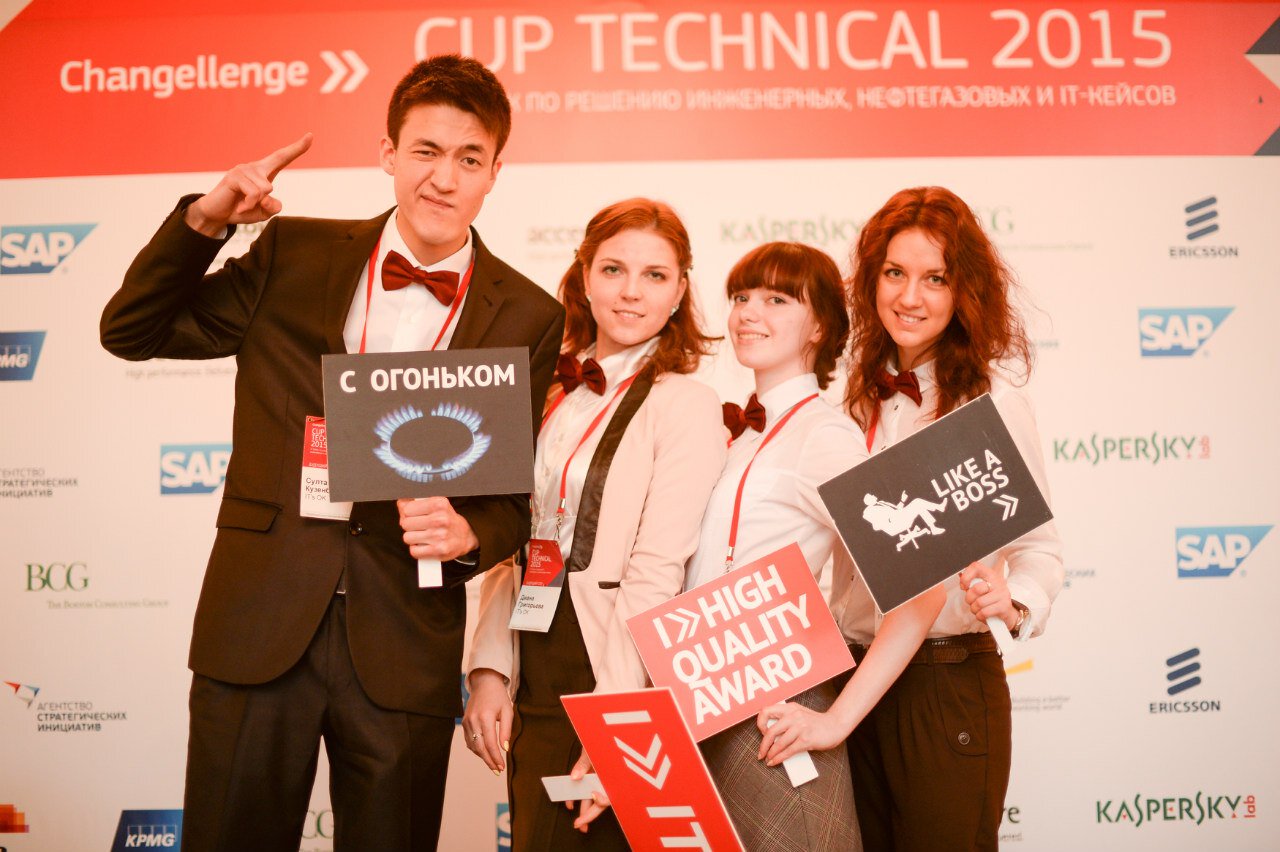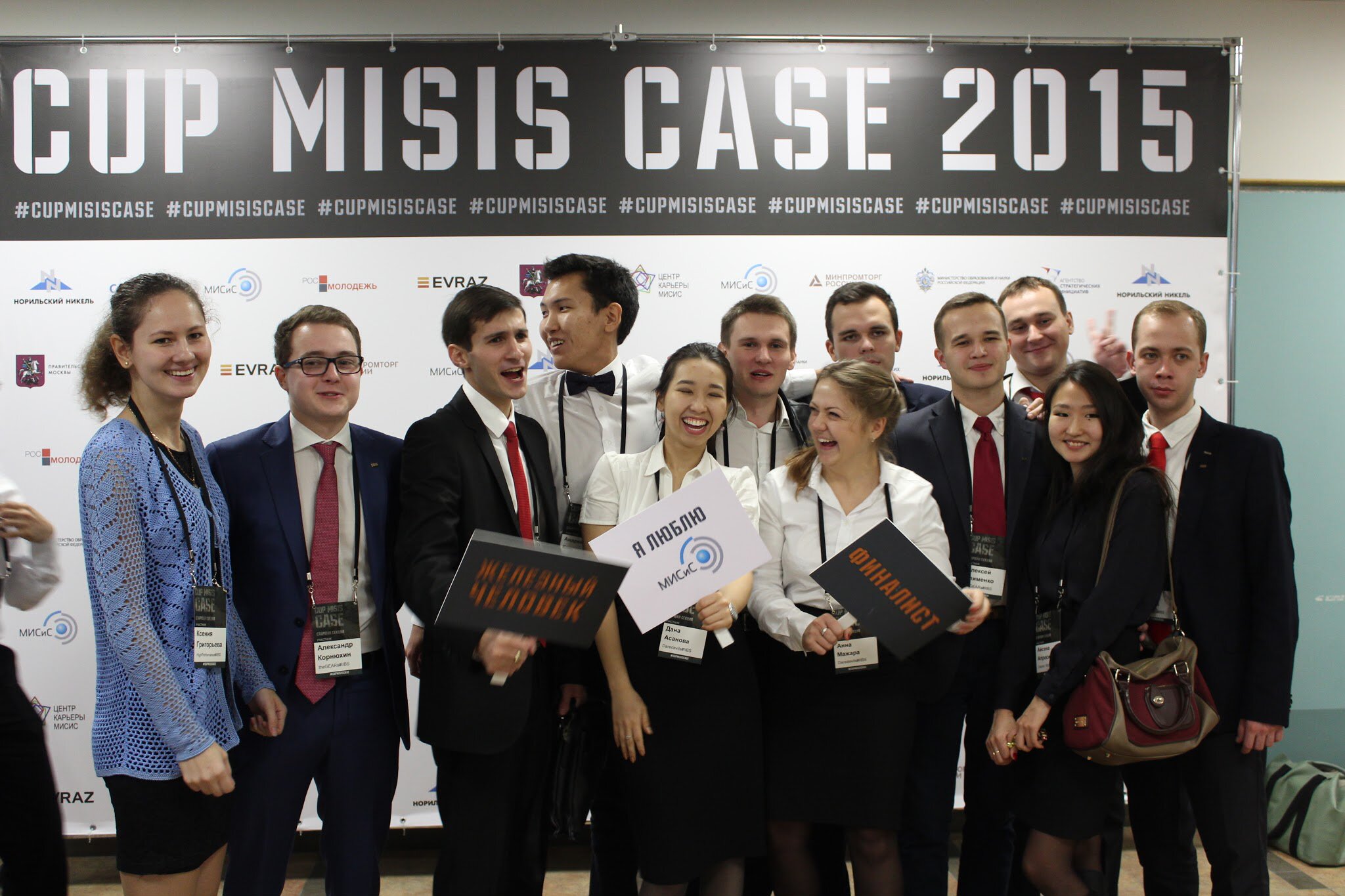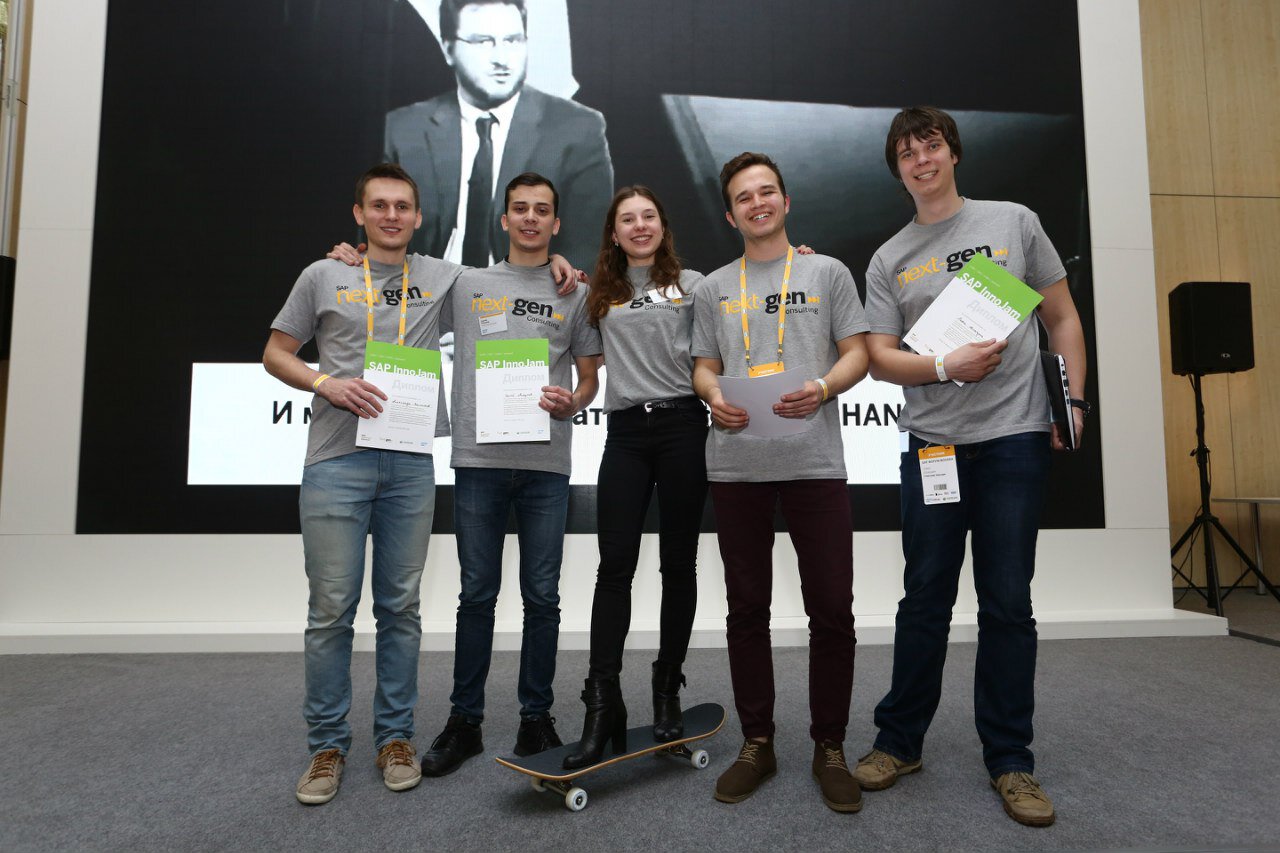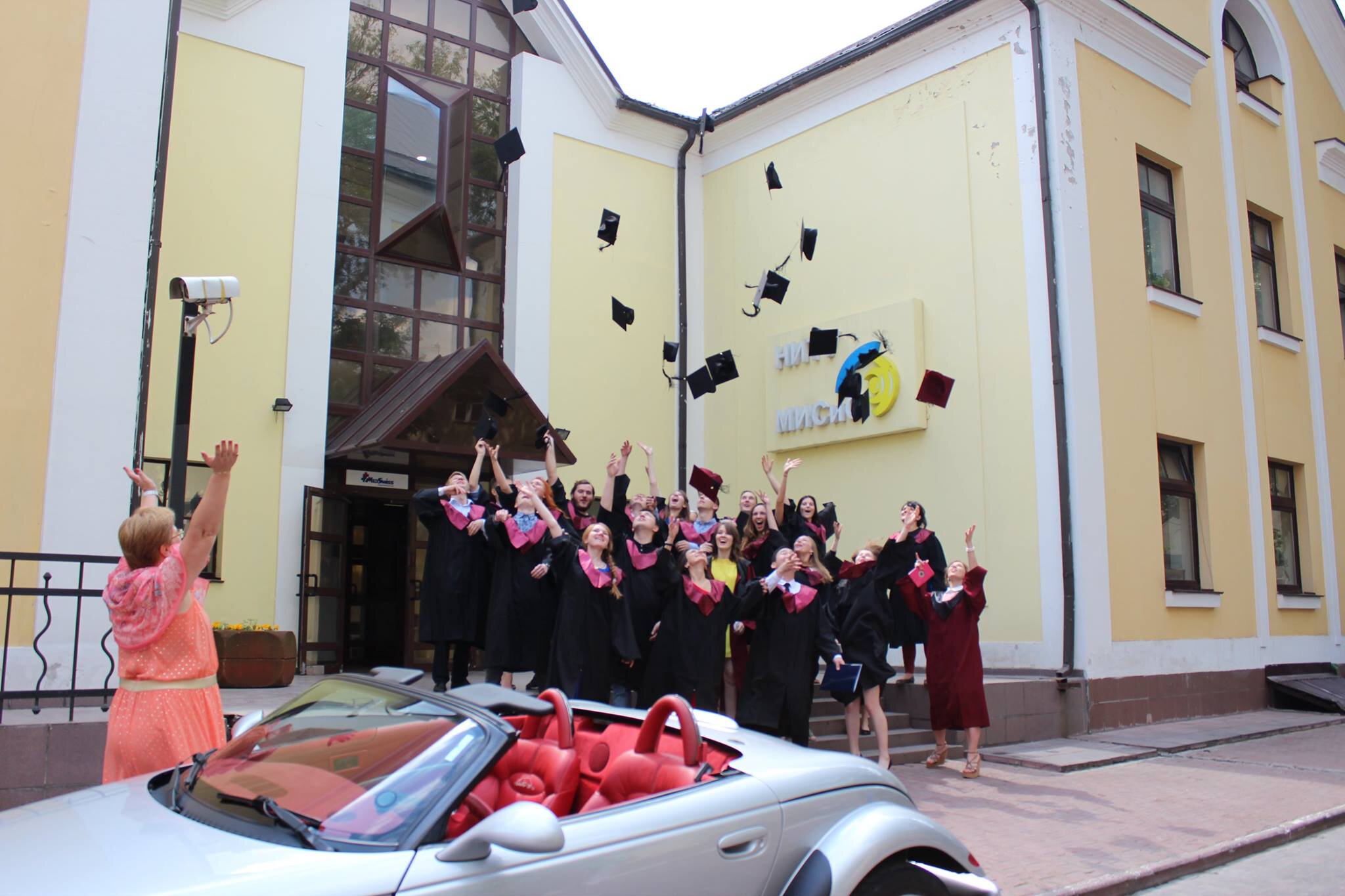“The Magic Word” for employers - experience of IIBS NITU “MISiS”
If you believe the HH.ru portal, then Big Data, sophisticated information systems specialists, other IT solution architects and PLM consultants are today one of the most enviable suitors. I apologize to the sought after and highly paid professionals. Big Data Engineers, for example, receive from 150,000 rubles in positions requiring experience of 3 years, and up to 450,000 rubles in senior positions in Moscow, and one and a half to two times higher abroad.
Meanwhile, the real situation with these specialists in the market is somewhat more complicated. It’s approximately the same with economists: for decades, Russian universities have been releasing them every year, not only in large quantities, but in large quantities, but any really competent and professional economist is a potential Kozlevich, who will sooner or later be lured and enticed.
So with Big Data specialists. Today, many institutes are preparing them, but at the same time finding a competent specialist in the market is still the quest!
NITU "MISiS" is also now receiving documents for the master's program "Big Data Ecosystems for Digital Transformation". Here are just students on it, like all students of the Institute of Information Business Systems (IIBS NITU "MISiS") are usually employed by the end of the first year of study.

Why it happens? Why do some headhunters immediately start hunting for some graduates, while others communicate with employment specialists - and with all the close proximity of these professions, the difference is fundamental. What kind of “magic word” does the IIHS management know, which has such a magical effect on employers?
To answer this question, we went to the director of the institute, Marina Igorevna Nezhurina, so that she would tell geeks about the educational strategy of her institute and share information about a rather unique IIBS case.

- Probably, the fact is that from the very beginning we laid the main emphasis on practical activities. In general, our institute was organized within the framework of a cooperation agreement between NITU MISiS and the well-known Russian IT companies IBS and Borlas as a model of private-state partnership between business and education for the training of specialists in the field of information systems and information technologies in the master elite .
Therefore, our customer joins the training of specialists at the stage of recruitment of students and actively participates in the educational process throughout the educational period.
We are not scattered, we only have two master's programs - “Implementation of complex information systems based on integration IT solutions” and “Big data ecosystem for digital transformation” , but we are training really good specialists in these areas. By the way, the IBS master's model at IIBI NUST “MISiS” is recognized as a benchmarking model of private-state partnership between a leading university and a business customer in both the educational and business communities.

The educational trajectory consists of three blocks: system-wide, specialized and practical. The first semester is devoted to the development of the "foundation" for further meaningful choice of specialization. Such basic courses as “Business Architecture”, “Project Management in a Modern Company”, “Modern Data Warehouse Architecture”, “Digital Innovation Management” are held, special chapters of mathematics and programming for working with big data are taught.
In the second semester, an in-depth study of the specialization begins either in the field of big data engineering or in the field of big data analytics, a greater bias is made in mathematics and Machine Learning (machine learning). After that, students are immersed in real practice, and only project activity begins.
It is noteworthy that they set tasks for educational projects, advise student teams and carry out acceptance of work results by real project managers and leading specialists of large IT companies.

And students write master's theses on real projects of companies, where children undergo practical training and internships under the guidance of mentors in companies and scientific advisers from the institute's departments. And often their design decisions are implemented in the real processes of customers, and the guys get the Acts of implementation.
Actually, it is always better to explain with an example. To make it clear what I’m talking about, I’ll just give a few names of recent master's theses:
As I said, business partners are deeply involved in all stages of the educational process. For example, the president of Borlas and the deputy general director of IBS are the heads of the basic departments of our institute.

I think it’s clear what exactly this gives the student: an order from the business for employment of students and graduates of master's programs, platforms for working out design decisions, virtual facilities for laboratory and practical work, real business cases from various sectors of the economy, such as retail, HR , financial sector, metallurgy, as well as the tasks of the full cycle - the examination and description of business processes, reengineering, the collection and analysis of big data (Big Data), the construction of forecast models. At the same time, the best students from project teams are employed by the company staff, and - an aspect not unimportant for the student - the work of students in practice and internships in projects is well paid.
Therefore, at the exit, we have a specialist trained in the latest methodologies, approaches and technologies with at least a year of experience.

Employment after graduation for all 11 years of the institute's existence is one hundred percent. And our graduates work in key positions at the largest Russian and foreign companies (IBS, Borlas, IT, SAP CIS, SaaS, BearingPoint, etc.). One of them is, in general, now the deputy mayor of Nizhny Novgorod for IT.
Meanwhile, the real situation with these specialists in the market is somewhat more complicated. It’s approximately the same with economists: for decades, Russian universities have been releasing them every year, not only in large quantities, but in large quantities, but any really competent and professional economist is a potential Kozlevich, who will sooner or later be lured and enticed.
So with Big Data specialists. Today, many institutes are preparing them, but at the same time finding a competent specialist in the market is still the quest!
NITU "MISiS" is also now receiving documents for the master's program "Big Data Ecosystems for Digital Transformation". Here are just students on it, like all students of the Institute of Information Business Systems (IIBS NITU "MISiS") are usually employed by the end of the first year of study.

Why it happens? Why do some headhunters immediately start hunting for some graduates, while others communicate with employment specialists - and with all the close proximity of these professions, the difference is fundamental. What kind of “magic word” does the IIHS management know, which has such a magical effect on employers?
To answer this question, we went to the director of the institute, Marina Igorevna Nezhurina, so that she would tell geeks about the educational strategy of her institute and share information about a rather unique IIBS case.

- Probably, the fact is that from the very beginning we laid the main emphasis on practical activities. In general, our institute was organized within the framework of a cooperation agreement between NITU MISiS and the well-known Russian IT companies IBS and Borlas as a model of private-state partnership between business and education for the training of specialists in the field of information systems and information technologies in the master elite .
Therefore, our customer joins the training of specialists at the stage of recruitment of students and actively participates in the educational process throughout the educational period.
We are not scattered, we only have two master's programs - “Implementation of complex information systems based on integration IT solutions” and “Big data ecosystem for digital transformation” , but we are training really good specialists in these areas. By the way, the IBS master's model at IIBI NUST “MISiS” is recognized as a benchmarking model of private-state partnership between a leading university and a business customer in both the educational and business communities.

The educational trajectory consists of three blocks: system-wide, specialized and practical. The first semester is devoted to the development of the "foundation" for further meaningful choice of specialization. Such basic courses as “Business Architecture”, “Project Management in a Modern Company”, “Modern Data Warehouse Architecture”, “Digital Innovation Management” are held, special chapters of mathematics and programming for working with big data are taught.
In the second semester, an in-depth study of the specialization begins either in the field of big data engineering or in the field of big data analytics, a greater bias is made in mathematics and Machine Learning (machine learning). After that, students are immersed in real practice, and only project activity begins.
It is noteworthy that they set tasks for educational projects, advise student teams and carry out acceptance of work results by real project managers and leading specialists of large IT companies.

And students write master's theses on real projects of companies, where children undergo practical training and internships under the guidance of mentors in companies and scientific advisers from the institute's departments. And often their design decisions are implemented in the real processes of customers, and the guys get the Acts of implementation.
Actually, it is always better to explain with an example. To make it clear what I’m talking about, I’ll just give a few names of recent master's theses:
- Automation system for interagency cooperation for the implementation of social financial obligations by the state fund in the framework of digitalization of healthcare;
- Digital Transformation Model of Oil and Gas Holding;
- Integration of Oracle Transportation Management with the system for calculating tariff rates for rail transportation;
- Predictive model of defects in the slab based on machine learning methods;
- Reengineering the process of providing public services when introducing a platform for a unified population register;
- A model of the process for managing the release of IT services of a large telecommunications company;
- The methodology for developing systems of high-tech products at the stage of preliminary design using a model-oriented approach;
- The Internet of Things platform data management model for open source projects.
As I said, business partners are deeply involved in all stages of the educational process. For example, the president of Borlas and the deputy general director of IBS are the heads of the basic departments of our institute.

I think it’s clear what exactly this gives the student: an order from the business for employment of students and graduates of master's programs, platforms for working out design decisions, virtual facilities for laboratory and practical work, real business cases from various sectors of the economy, such as retail, HR , financial sector, metallurgy, as well as the tasks of the full cycle - the examination and description of business processes, reengineering, the collection and analysis of big data (Big Data), the construction of forecast models. At the same time, the best students from project teams are employed by the company staff, and - an aspect not unimportant for the student - the work of students in practice and internships in projects is well paid.
Therefore, at the exit, we have a specialist trained in the latest methodologies, approaches and technologies with at least a year of experience.

Employment after graduation for all 11 years of the institute's existence is one hundred percent. And our graduates work in key positions at the largest Russian and foreign companies (IBS, Borlas, IT, SAP CIS, SaaS, BearingPoint, etc.). One of them is, in general, now the deputy mayor of Nizhny Novgorod for IT.
